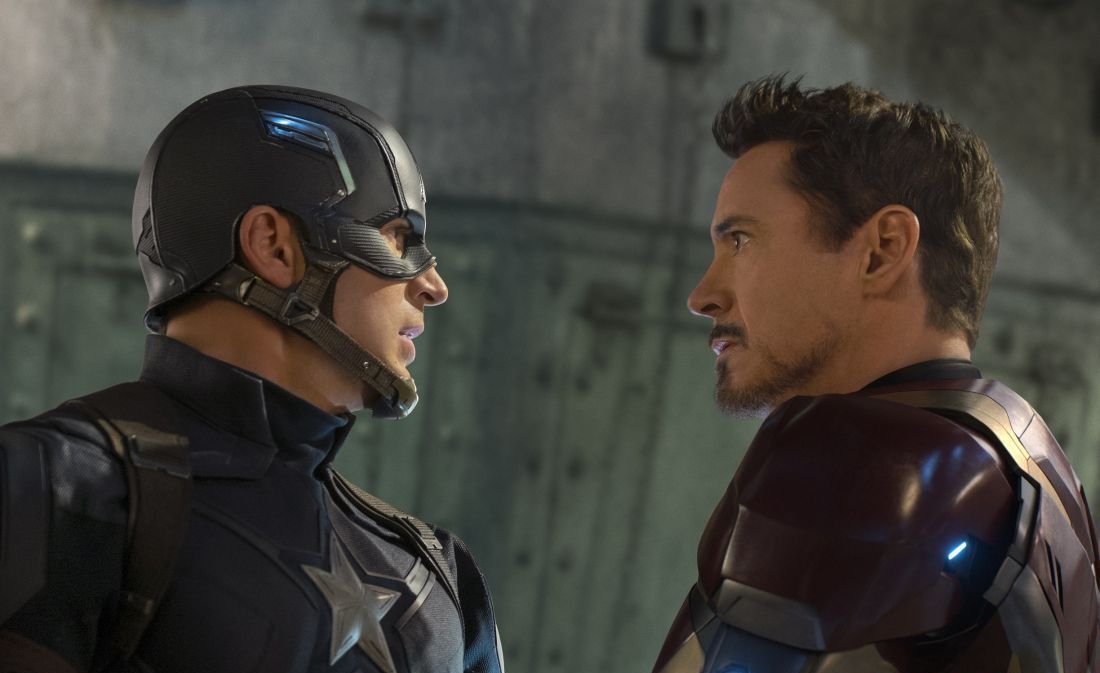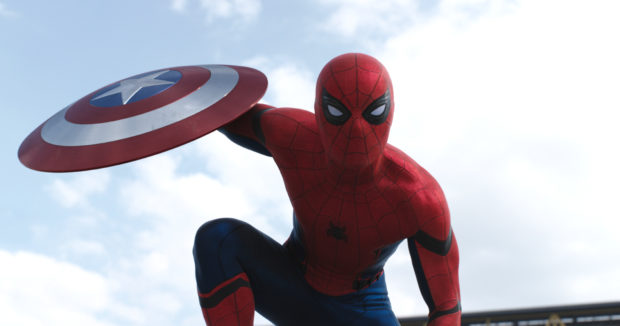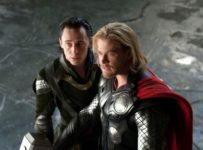The latest Marvel film achieves the improbable, battling heroes in a grounded and brooding world without losing the fun.
Thirteen films and several spin-off television series into the Marvel Cinematic Universe, it’s fair to say that the interrelationships between the various leads are more complicated than most film franchises. For a collective that showed us previously unknown solo stars Iron Man and the Guardians of the Galaxy could be mega hits with mainstream audiences, it could also get murky when those individual parts are all vying for a bigger piece of the pie, as they did in Avengers: Age of Ultron. Thankfully, the Russo Brothers – the team behind the last Captain America entry – avoids that by focusing on the same character development and old-school espionage elements that elevated the previous entry into something more than a mere cape-fest.
Nominally a sequel to Captain America: The Winter Soldier, the sheer scale and cast of CAPTAIN AMERICA: CIVIL WAR means it is realistically a part of the wider Avengers machine. Taking its name from Marvel’s Civil War comic book epic, containing over 120 tie-in issues and crossovers, screenwriters Christopher Markus and Stephen McFeely necessarily abbreviate concepts to fit the Cinematic Universe as well. Here the catalyst is a failed Avengers mission to stop a terrorist group that accidentally results in the death of Wakandan nationals, prompting Secretary of State Thaddeus “Thunderbolt” Ross (William Hurt) to call for the team to be answerable to a governing body. It divides Captain America/Steve Rogers (Chris Evans) and Iron Man/Tony Stark (Robert Downey Jr) into opposing camps, and an explosive event that solidifies the rift around the lightning rod of Steve’s childhood friend, “Bucky” Barnes (Sebastian Stan).
CAPTAIN AMERICA: CIVIL WAR succeeds where other similar adventures misfired by remaining faithful to its established world. Cleverly steering the Avengers into the world of Captain America: The Winter Soldier, rather than the other way around, it acts as a direct continuation of that universe while introducing new elements that never feel superfluous or manufactured. The highly publicised introduction of Spider-Man is an organic and joyful series of moments, making full use of the chattering interplay that the webhead is known for. Tom Holland makes for a wonderful young Peter Parker, and it will be terrific to see him (and the all-too-brief Marisa Tomei) expand their roles in Spider-Man: Homecoming. Each character is given just enough time for audiences to appreciate what they can bring to the team, but the focal point remains the competing ideals of Stark and Rogers, a far more nuanced relationship than even the lengthy comic series offered. The Russos still allow themselves the indulgence of an all-out superhero brawl in a mind-blowing airport sequence, but have enough restraint to move on with this relationship afterwards.
Filled with massive set-pieces and quiet moments of equal impact, it’s impossible to completely separate CAPTAIN AMERICA: CIVIL WAR from the dozen films that preceded it. It goes without saying that this is a difficult entry point into the series, but on the other hand, these characters are also becoming part of the common discourse. Nevertheless, it is a strong franchise entry that should remind all blockbuster filmmakers that it is possible to be faithful to the source material, appeal to mainstream audiences and create compelling modern heroes for the screen at the same time.
2016 | US | Dir: Joe and Anthony Russo | Writers: Christopher Markus and Stephen McFeely | Cast: Robert Downey Jr., Scarlett Johansson, Sebastian Stan, Anthony Mackie, Don Cheadle, Jeremy Renner, Chadwick Boseman, Paul Bettany, Elizabeth Olsen, Paul Rudd, Emily VanCamp, Tom Holland, Frank Grillo, William Hurt, and Daniel Brühl | Distributor: Disney | Running time: 147 minutes | Rating:★★★★¾





